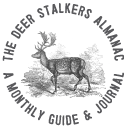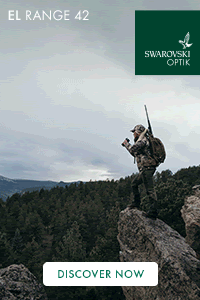Peter Jones suggests some possible explanations for discovering Diarrhoea in Deer.
Charming subject this one!
I had a telephone call from a regular client of mine this morning who lucky for him had found himself a nice plot of land and had culled his first Roe Doe from it.
So why the call? Well not just to gloat about the land but instead to query the obvious diarrhoea from which the now expired Roe deer had been suffering.
Deer are ruminants and are usually highly selective about their diet tending to favour new growth including buds, leaves and the tips of new shoots. Amongst favoured foods is new coppice growth, Ivy and Brambles. They will however when pressed for food extend their diet to other less nutritious food sources including fruit, cereal crops and even heather.
Pressured still further and they are able to consume small quantities of semi poisonous plants such as Yew or Laurel however in larger quantities this can lead to ill effects. As with humans there are many causes of Diarrhea and symptoms may also betray the presence of a virus.
Other explanations I have heard relate to frozen vegetation which when consumed by the deer breaks down more readily in the gut and upsets the pH balance in the digestive system. This would certainly fit with the recent snow fall and freezing conditions that we have had.
I have myself this year also found a number of Roe to be suffering from Diarrhea. Personally if I were to hazard a guess why this is the case I would have to speculate that it is to do with the unusually wet weather that we have experienced. Continual feeding on frozen and sodden vegetation must have an effect on the deer's digestive system. Try eating some soggy wet salad yourself for any prolonged period and I think you'll soon believe me!!
I could be wrong about this but it would seem to make sense to me and fit with my experience. What is important however is that with any animal that we have culled and wish to enter into the food chain it is crucial as deer stalkers that any unusual observations be investigated further. If you are unsure about a deer's condition then it is prudent to be extra vigilant with your carcass inspection. If you remain concerned then you have an obligation to seek assistance from the Animal Health Divisional Office or from a qualified Vet.


















